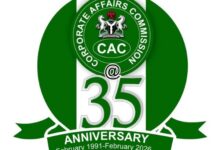The United Nations has published the Joint Letter of Concern sent to the federal government in which they expressed concerns that “access to electricity is a significant problem in Nigeria,” and raised eight questions for the government to answer within 60 days.
Socio-Economic Rights and Accountability Project (SERAP) said in a statement that the letter with reference No NGA 5/2013, dated November 26, 2013,and signed by two special rapporteurs expressed concerns that “at the end of 2012, Nigeria with a population of about 160 million people only generated about 4,000 megawatts of electricity, which is 10 times less than some other countries in the region with less population.
 “To date, the government has not responded to the eight crucial questions raised by the UN on the unfair and discriminatory electricity tariff”, said Executive Director (SERAP), Adetokunbo Mumuni.
“To date, the government has not responded to the eight crucial questions raised by the UN on the unfair and discriminatory electricity tariff”, said Executive Director (SERAP), Adetokunbo Mumuni.
According to SERAP, the UN special rapporteurs argued that “all beneficiaries of the right to adequate housing should have sustainable access to energy for cooking, heating and lighting. The failure of the States to provide basic services such as electricity is a violation of the right to health.”
SERAP said the rapporteurs Ms. Magdalena Sepúlveda Carmona, Special Rapporteur on extreme poverty and human rights and Ms. Raquel Rolnik, Special Rapporteur on adequate housing sent the letter.
The UN sent the letter to the federal government following a petition lodged last year by a coalition of human rights activists, labour, journalists and lawyers led by SERAP.
The petition alleged that the implementation of the Multi-Year Tariff Order II (MYTO II) by the Nigerian Electricity Regulatory Commission (NERC) was “having detrimental impact on the human rights of those living in poverty in the country.”
Consequently, the special rapporteurs wanted answers to eight questions.
According to the special rapporteurs, “We would be most grateful to receive a response within 60 days, which will be made available in the report that we will submit to the Human Rights Council for its consideration of the matter.”
The rapporteurs said services “such as electricity must be provided without discrimination towards people living in poverty and that no one should be denied access to essential services because of an inability to pay.
“Less than 50 per cent of registered electricity customers have access to electricity meters, and ongoing inaccuracies in measuring electricity usage will continue to hinder fair electricity access and exchange. Mismanagement throughout the privatiSation process, and around $3.5 billion that has been mismanaged annually over the last ten years, and a total of $16 billion released to improve electricity supply in the country that has not been properly accounted for,” the rapporteurs alleged.
They also accused the business units which had taken over from the PHCN of “large-scale corruption such as graft from exorbitant consumer bills, rejection of payment to independent third parties such as banks to keep management of funds secret, unprecedented disconnection of consumers’ power lines, general bribery and fraud amongst staff, adding up to over N1 billion extra charged to consumers annually.”
Courtesy: THISDAY












